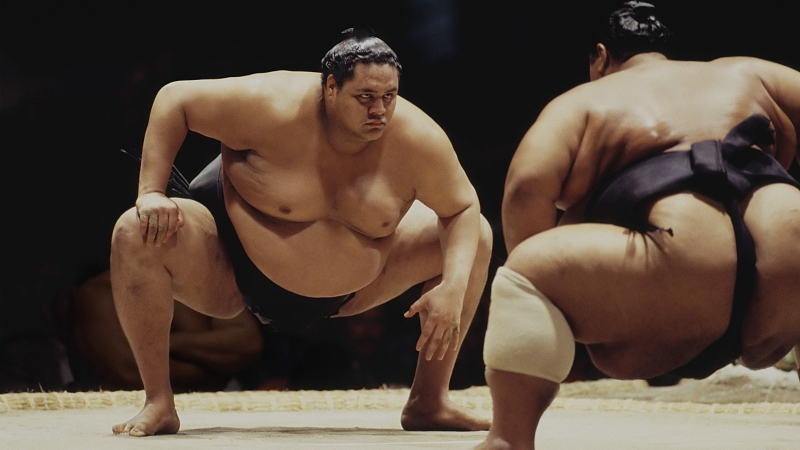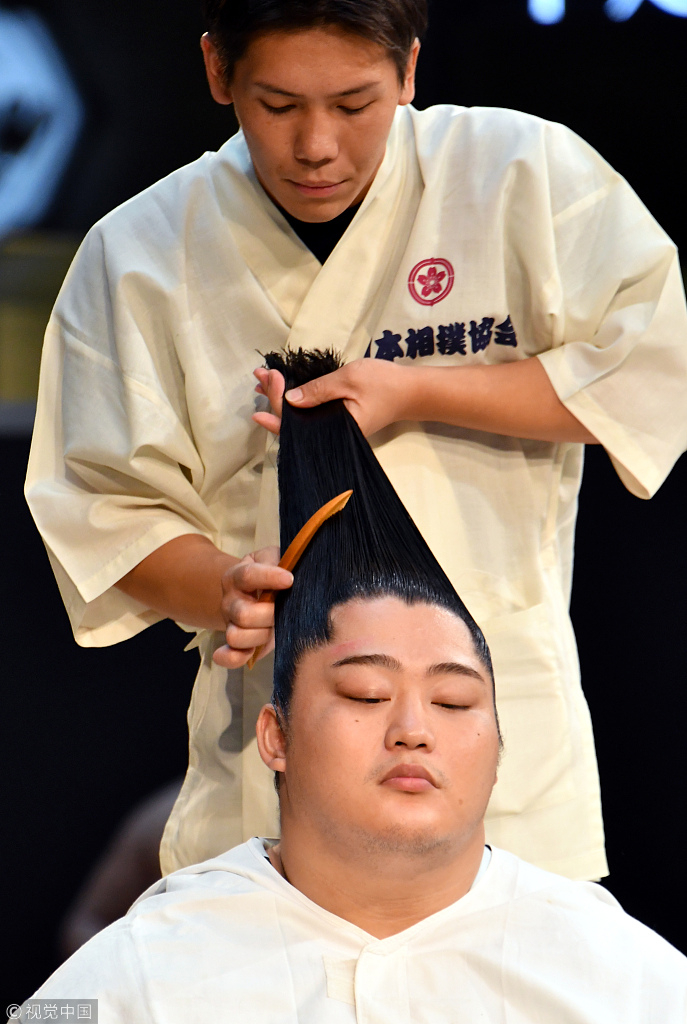
Sports
20:29, 27-Feb-2019
Japan's sumo wrestlers banned from growing 'lucky' beards
Chen Rong

Sumo wrestlers in Japan are not allowed to grow beards, for the sake of their decent appearances, according to the sports' governing body on Wednesday.
The Japan Sumo Association (JSA) added the "indecent beard ban" on wrestlers' strictly lives-controlling rules that also refrain sumo wrestlers from having long nails or tattoos.
"Wrestlers must preserve their personal hygiene," JSA elder Oguruma said.
"The dohyo ring is sacred. I want the people to feel good when they watch the sport," he added.
"Officials and referees will be on the lookout. The sumo ring is sacred and it is important spectators don't see anything unsightly."
In the past, the action of not shaving beards during tournaments, in the eyes of sumo wrestlers, could bring them good luck.

A hairdresser (back) uses a comb to make the topknot for a sumo wrestler during a ceremony in Tokyo, Japan, August 28, 2016. /VCG Photo
A hairdresser (back) uses a comb to make the topknot for a sumo wrestler during a ceremony in Tokyo, Japan, August 28, 2016. /VCG Photo
Also, the beard used to match the wrestlers' traditional dress and their specially formed hairstyle – a topknot, which is similar to the samurai styles originated in the Edo Period.
Different from the beard which is banned, the topknot is under deliberate care. It is formed by exactly 55 authorized master hairdressers using specific procedure items, such as boxwood combs, strings made from wax paper, and a pomade of chamomile oil.
When a sumo wrestler retires, his topknot will be cut by his family, friends, patrons, and elder master respectively during a special ceremony.

SITEMAP
Copyright © 2018 CGTN. Beijing ICP prepared NO.16065310-3
Copyright © 2018 CGTN. Beijing ICP prepared NO.16065310-3